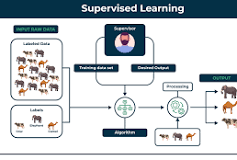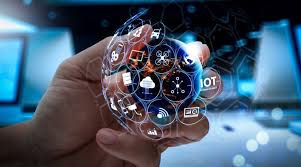The Impact of Technological Advancements on Modern Society
In today’s rapidly evolving world, technology plays an integral role in shaping how we live, work, and interact with each other. From the advent of the internet to the rise of artificial intelligence, technological advancements have significantly transformed various aspects of modern society.
Enhancing Communication
One of the most profound impacts of technology is on communication. The development of smartphones and social media platforms has revolutionised how people connect globally. Instant messaging and video calls have made it possible to maintain relationships across distances that were once unimaginable. This ease of communication has also facilitated global business operations, allowing companies to collaborate and operate across borders seamlessly.
Transforming Industries
Technological innovations have dramatically changed many industries, from healthcare to manufacturing. In healthcare, advanced diagnostic tools and telemedicine have improved patient care and accessibility. In manufacturing, automation and robotics have increased efficiency and precision, reducing costs and enhancing product quality.
The Rise of Artificial Intelligence
Artificial intelligence (AI) is at the forefront of technological progress. AI systems are being utilised in various fields to optimise processes, analyse large datasets, and even drive autonomous vehicles. The potential applications of AI are vast and continue to expand as research progresses.
Challenges and Considerations
While technology brings numerous benefits, it also presents challenges that need addressing. Privacy concerns are paramount as data collection becomes more pervasive. Additionally, the digital divide remains a significant issue, with many parts of the world lacking access to essential technologies.
The Future Outlook
The future promises even more transformative technological developments. Innovations such as quantum computing and biotechnology hold the potential to revolutionise industries further. However, it is crucial for society to navigate these changes thoughtfully, ensuring ethical considerations are at the forefront.
In conclusion, technology continues to be a driving force in modern society’s evolution. While it offers remarkable opportunities for growth and improvement across various sectors, it is essential to address its challenges responsibly to ensure a balanced and equitable future for all.
Exploring Key Questions on Technological Advancements and Their Impact
- What is the latest technological advancement?
- How does technology impact our daily lives?
- What are the benefits of incorporating technology in education?
- What are the risks associated with cybersecurity in the digital age?
- How can artificial intelligence improve business operations?
- What role does technology play in environmental sustainability?
- What are the ethical implications of emerging technologies?
What is the latest technological advancement?
The question “What is the latest technological advancement?” is one that reflects society’s curiosity and eagerness to stay up-to-date with the ever-evolving world of technology. In today’s fast-paced environment, new breakthroughs and innovations emerge regularly, shaping how we live and interact with the world around us. From developments in artificial intelligence and machine learning to advancements in quantum computing and biotechnology, the latest technological advancements hold the promise of transforming industries, enhancing efficiency, and opening up new possibilities for the future. Keeping abreast of these advancements not only fosters a deeper understanding of our rapidly changing world but also sparks imagination and innovation for what lies ahead.
How does technology impact our daily lives?
Technology has a profound impact on our daily lives, influencing how we communicate, work, and navigate the world around us. From the convenience of smartphones that keep us connected at all times to the efficiency of online tools that streamline tasks, technology has become an integral part of modern living. It has transformed how we access information, shop, entertain ourselves, and even manage our health. While offering numerous benefits in terms of convenience and productivity, technology also raises questions about privacy, digital dependence, and its effects on social interactions. Overall, technology’s impact on our daily lives is undeniable, shaping the way we live and interact in today’s digital age.
What are the benefits of incorporating technology in education?
Incorporating technology in education offers a multitude of benefits that enhance the learning experience for students. Technology provides access to a vast array of educational resources and tools, enabling personalised learning tailored to individual needs and preferences. Interactive platforms and multimedia content engage students more effectively, fostering a deeper understanding of complex concepts. Additionally, technology facilitates collaboration among students and educators, promoting communication and teamwork skills essential for the modern workforce. By integrating technology into education, institutions can create dynamic and innovative learning environments that prepare students for success in an increasingly digital world.
What are the risks associated with cybersecurity in the digital age?
In the digital age, cybersecurity risks have become a prevalent concern due to the increasing reliance on technology and interconnected systems. One of the primary risks is data breaches, where sensitive information can be compromised, leading to financial losses and reputational damage for individuals and organisations. Cyber attacks, such as malware and ransomware, pose a significant threat by disrupting operations and causing data loss. Phishing scams targeting unsuspecting users for personal information also remain a prevalent risk. As technology advances, it is crucial for individuals and businesses to prioritise cybersecurity measures to safeguard against these evolving threats in the digital landscape.
How can artificial intelligence improve business operations?
Artificial intelligence (AI) can significantly enhance business operations by streamlining processes, improving decision-making, and boosting productivity. By automating routine tasks, AI allows employees to focus on more strategic activities that require human insight and creativity. Machine learning algorithms can analyse vast amounts of data swiftly, providing valuable insights that inform better business decisions. Additionally, AI-driven tools can personalise customer experiences, leading to increased satisfaction and loyalty. Predictive analytics powered by AI can also help businesses anticipate market trends and customer needs, enabling proactive strategies that maintain a competitive edge. Overall, the integration of AI into business operations results in greater efficiency and innovation.
What role does technology play in environmental sustainability?
Technology plays a crucial role in environmental sustainability by offering innovative solutions to address pressing ecological challenges. From renewable energy sources like solar and wind power to smart grid systems that optimise energy distribution, technology enables us to reduce our carbon footprint and mitigate the impact of climate change. Additionally, advancements in waste management technologies, such as recycling systems and waste-to-energy processes, contribute to a more sustainable approach towards resource conservation. By harnessing the power of technology, we can create a greener future and strive towards a more environmentally conscious society.
What are the ethical implications of emerging technologies?
The ethical implications of emerging technologies are a crucial consideration in today’s rapidly advancing digital landscape. As new technologies such as artificial intelligence, biotechnology, and autonomous systems continue to evolve, questions arise regarding privacy, data security, accountability, and societal impact. Issues such as algorithmic bias, the use of personal data, and the potential for job displacement require careful ethical deliberation to ensure that these technologies are developed and deployed responsibly. Striking a balance between innovation and ethical considerations is essential to foster trust in emerging technologies and mitigate potential risks to individuals and society as a whole.






